From Cape Town to Plett
Expanding Shark Spotters’ training and education programme
Plettenberg Bay’s aqua-blue ocean and picturesque expanses of sandy beach make it undoubtedly one of South Africa’s most popular local holiday destinations. Residents and visitors alike are drawn to the natural wonder of the abundant marine life in the area, relishing the opportunity to immerse themselves in the fascinating and exciting underwater world.
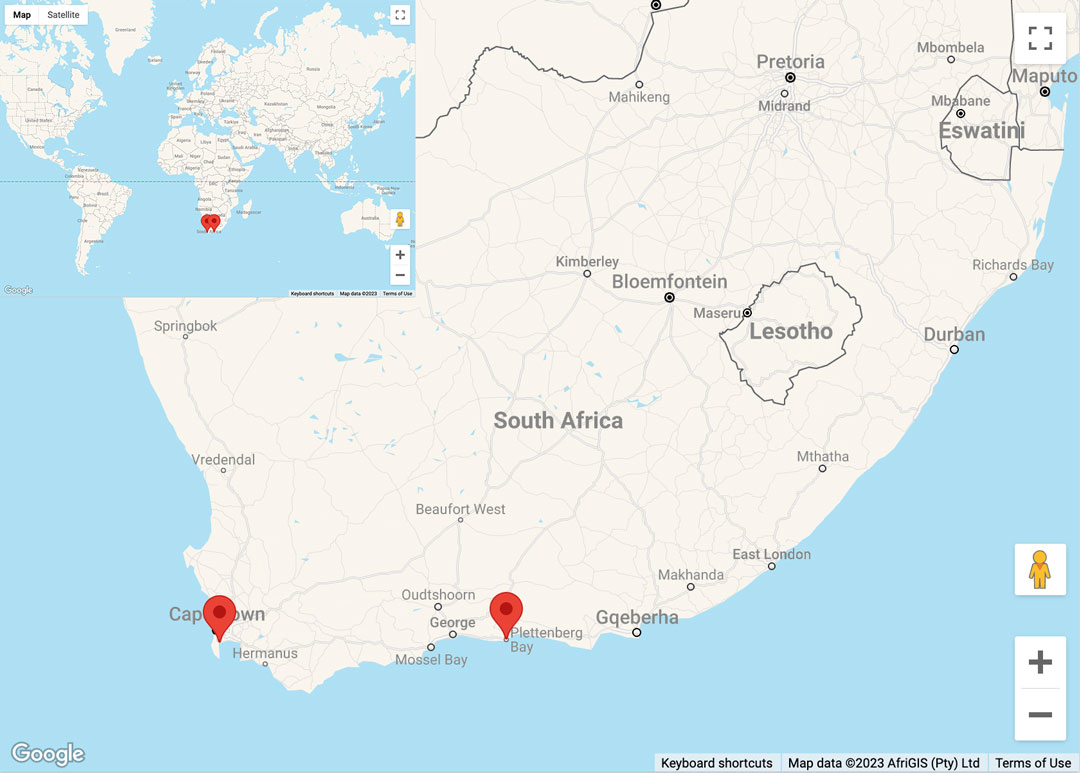
Map showing the two main locations of Shark Spotters in Cape Town & Plettenberg Bay, South Africa. Map © Snazzy Maps | Google Maps
However, sometimes living so close to nature can feel a bit too close for comfort, and the two fatal shark bite incidents in Plettenberg Bay in 2022 left the community and its visitors a little unnerved, with many questions about white sharks and an eagerness to understand more about these important but potentially dangerous apex predators.
Thankfully, the expansion of Shark Spotters to Plettenberg Bay has opened up new and exciting opportunities. We are enhancing Plett’s safety programme with a strong educational component, as we have in Cape Town, to increase the understanding of white shark presence in our waters, as well as improve beach safety. This has also provided promising opportunities to collaborate with local organisations, and educate young local ocean ambassadors about the importance of sharks in our oceans and our vision of the sustainable coexistence of people and sharks.
Our Education efforts in Plett kicked off at the end of November 2022 when our Cape Town Shark Spotters Education team which included Education Manager, Taryn van Neel and Education intern Juanita van Baalen, headed to Plett to train the newly recruited Plett shark spotters and lead an engaging education programme with Learn to Surf Plett. In addition, the team partnered with Nature’s Valley Trust and provided shark safety education materials to be used on Plett’s beaches over the busy school holidays.
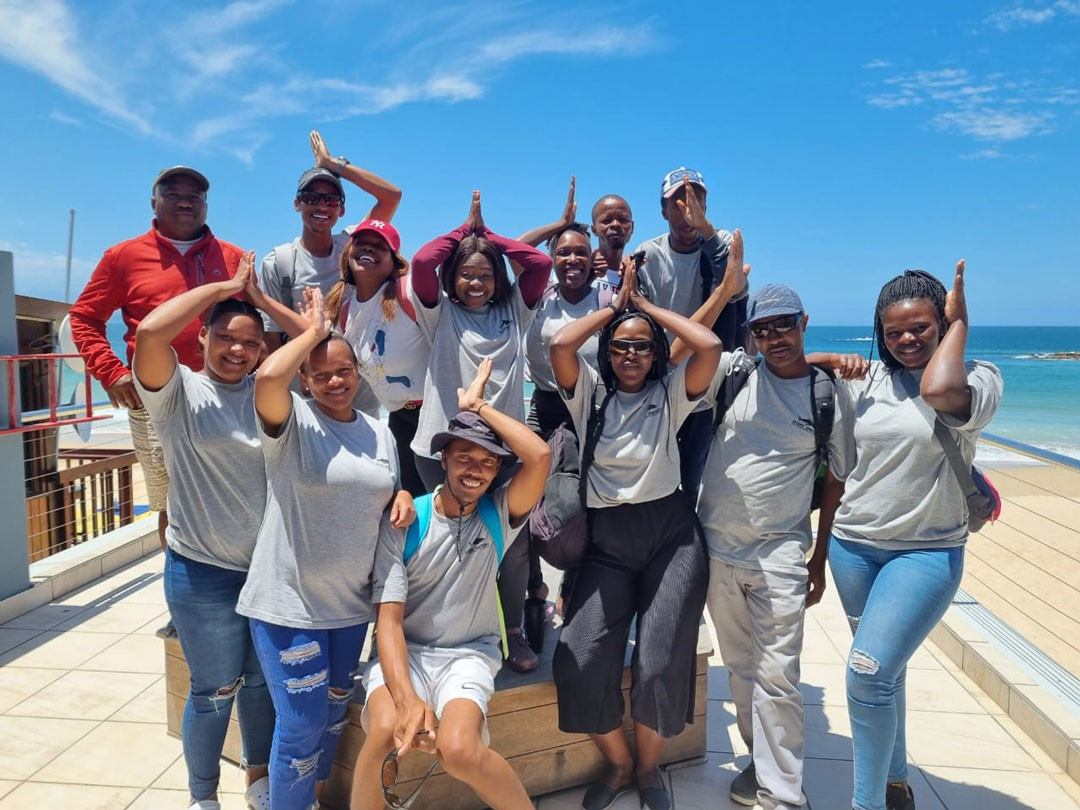
Plettenberg Bay Shark Spotters. Photo © Shark Spotters
Training the new Plett Spotters was vitally important, as they are the frontline of the programme, not only keeping people safer at the beach but also educating the public on a daily basis from their lookout points. The aim of the training was to provide in-depth knowledge on the purpose and operation of Shark Spotters, why it was initiated and how the flag warning system works. There are four flags that are flown on the beaches based on two factors: 1) the spotting conditions and 2) shark sightings or likelihood of a shark being in close proximity to the shore. Click here to learn more about the flag warning system.
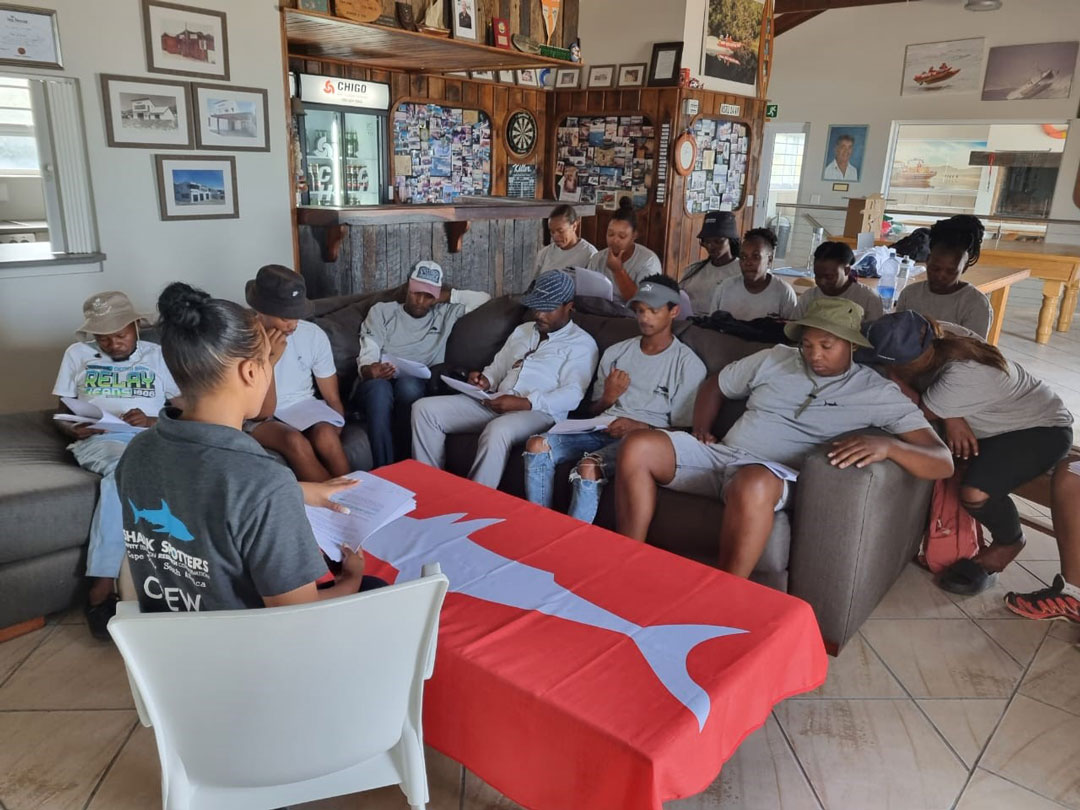
Education manager, Taryn van Neel, running through the flag warning system with the Plett spotters. Photo © Shark Spotters
Shark Spotters uses sustainable methods that do not cause harm to the sharks, as they are valuable to the marine ecosystem. The spotters were taught about lethal shark control methods, their negative impacts on sharks, and why it is important that Plett takes a more sustainable approach to manage human-shark conflict. They were also trained on how they should engage with the public, the differences between bronze whaler sharks and white sharks, and much more. The training facilities were provided by National Sea Rescue Institute (NSRI) Plettenberg Bay and the training was also attended by the Bitou Municipality Extended Public works Programme (EPWP) Baboon Monitors as they were patrolling the beaches and assisting the spotters when they are not doing any baboon monitoring.
The team also led an education programme in collaboration with the Nature’s Valley Trust and Learn to Surf Plett. The purpose of the programme was to convey information to the young surfers from Learn to Surf Plett about the value of sharks in the ecosystem, as a result fostering care rather than fear towards these misunderstood predators.
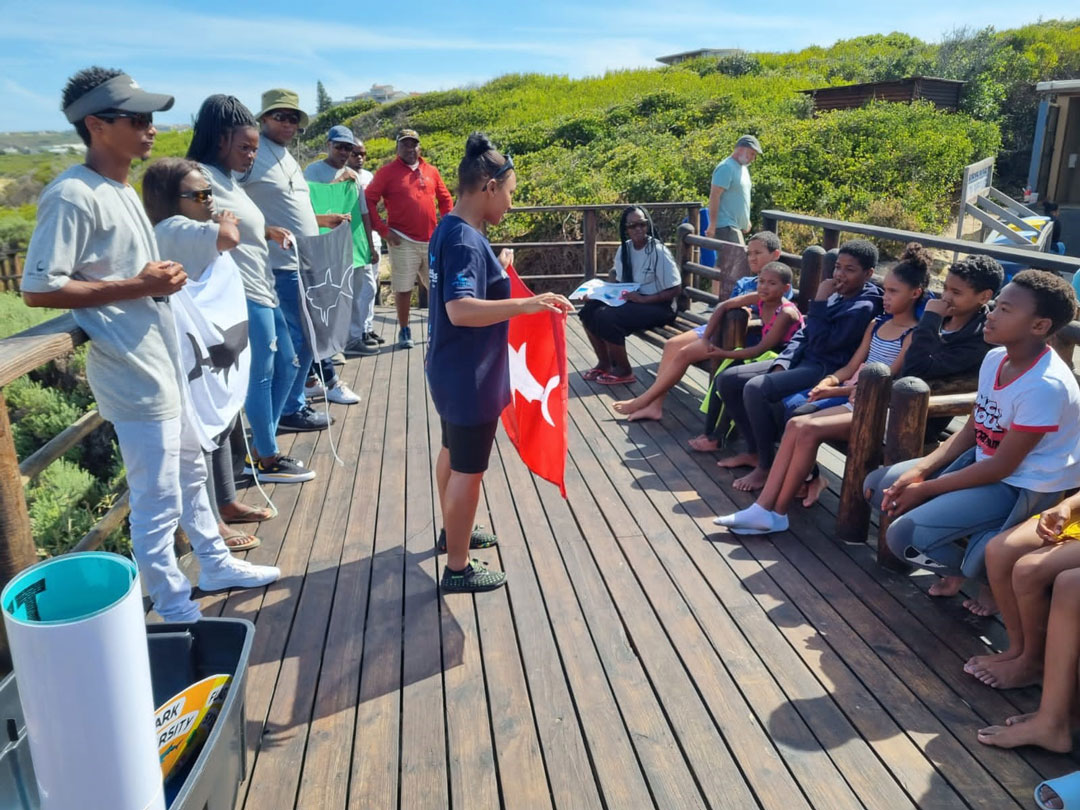
Education Manager, Taryn van Neel, talking about the flag warning system. Photo © Shark Spotters
“Following the two shark incidents in Plettenberg Bay this year, there was a lot of fear and trauma surrounding the ocean and sharks. This heightened the fear of sharks in children, and the education programme aimed to change their perspectives about sharks and their role in the ecosystem.
Since the implementation of the Shark Spotters programme in Plett, the education programme was designed to influence the children’s behaviour around interacting with the ocean. As regular water users, the learners were taught about the flag warning system and shark safety habits to implement in the water. This means that they know what to do when a certain flag is up on the beach.” says Taryn van Neel.
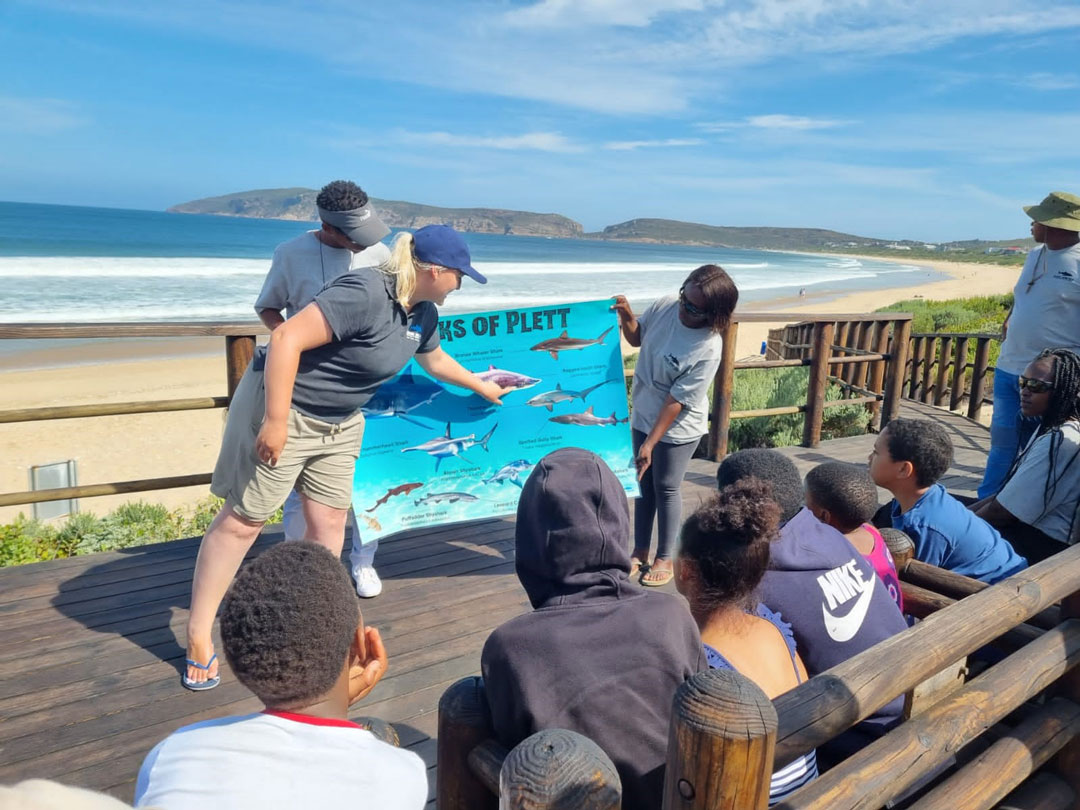
Education intern, Juanita van Baaleen, talking about the sharks of Plett. Photo © Shark Spotters
Changing perspectives towards sharks is not a linear process, especially following recent events. However, the ongoing collaboration with local organisations allows us to reach more people, creating a ripple effect of improved understanding and appreciation of these important ocean predators.
Follow us closely over the coming months to keep up with our education activities in Plett and Cape Town, and learn how you, too, can #BeSharkSmart!
Cape Town
- Facebook: Shark Spotters
- Instagram: @sharkspotters
- Twitter: @sharkspotters
- Tiktok: @sharkspotters
Plettenberg Bay
- Facebook: Plett Shark Spotters
- Instagram: @plettsharkspotter
- Twitter: @plettsharkspot
